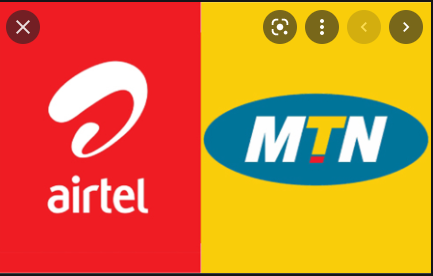MTN and Airtel in a win-win with banks. But fintechs in for a fight
By Jeph Ajobaju, Chief Copy Editor
MTN and Airtel are on the cusp of operating as Payment Service Banks (PSBs) having received Approval in Principle (AIP) from the Central Bank of Nigeria (CBN) to add the portfolio to their lucrative mobile telecom business.
The new frontier is a win-win for PSBs and commercial banks, but fintechs are in for a stiff competition with MTN and Airtel for customer base, financial transactions as well as for profit.
CBN guidelines say PSBs can take deposits from people and small businesses, provide payment and remittance services within Nigeria, issue debit and prepaid cards, run electronic wallets, and engage in other approved operations.
The general public received this with mixed feelings as they assume there will be tighter competition between telcos and traditional banks.
_____________________________________________________________
Related articles:
E-banking fetches N216b for Nigerian banks
The pros and the cons of CBN’s e-Naira
__________________________________________________________________
Synergy between PSBs and commercial banks
Nairametrics explains that the main role of PSBs is to increase financial inclusion through high-volume low-value transactions in a secure tech-driven environment.
They do this by providing small businesses, low-income households, and other financially excluded entities with access to deposit products and payment/remittance services.
AIP is only the first step in becoming a PSB. Promoters of a proposed bank must apply to the CBN for a final licence no later than six months after receiving AIP.
Analysts who spoke to Nairametrics agreed that PSBs will facilitate the financial inclusion drive of the CBN. Their views are articulated below:
Edward Okonkwo (Nairametrics co-founder)
“The banks have nothing to worry about because the way the PSB is structured is like the midwife situation since the PSBs would be subordinate to the commercial banks.
“Banks shouldn’t be concerned about sharing revenue because the funds would still be with banks. Banks should start thinking about how to create more loans and use the lower-cost infrastructure to distribute the loans.
“With new initiatives on the way such as the credit agency, fintech AI or credit profiling services, it means there are a lot of opportunities appearing in the space and enough revenue for everyone to share.
“Yes, the bank may lose some of their traditional banking revenue like the N26 for moving money around, but let the bank grant more loans and make money from loans because PSB are not going to compete with the banks in that space.
“I see the arrangement as a win-win for commercial banks because they can spend less time creating inroads in remote areas, leaving MTN and Airtel to cover those while they focus on granting loans.
“It is a win for consumers as most customers just use the money for transactional purposes and this would reduce transaction cost.
“It is also a win for the sector as the CBN would be able to achieve its financial inclusion objectives having lowered acquisition costs without putting a lot of pressure on the banks.”
Ayobami Omole (TMT Analyst at Tellimer)
“What this means for the sector is increased competition, and increased competition means that service delivery and costing for end-users is supposed to get better.
“I don’t think the banks should be worried because, eventually, depending on how things play out, there is always going to be an advantage for them to integrate.
“MTN and Airtel can act as aggregators for the banks’ services. The licence that MTN and Airtel has is a PSB licence and under the licence, they can’t grant loans directly.
“In a place like Kenya, Safaricom loan service is in collaboration with two of their banks. Hence, both banks have been able to grow their loan books, especially to retail consumers through the loan facility of Safaricom.
“We can see the same thing happening in Nigeria where the telecom firms partner with the commercial banks. So it might not translate into bad news for the banks but it’s still too early to say.
“The PSB licence doesn’t allow the telcos to give loans from deposits but they can collaborate and act as a channel. It also depends on what the CBN allows in terms of collaboration.
“Fintechs may face intense competition, resulting in lower transaction costs for customers. Because of the stiff competition, banks should concentrate on loans and be more creative with their revenue generation.
What PSBs can do
By CBN guidelines, PSBs can
- Accept deposits from individuals and small businesses, which shall be covered by the deposit insurance scheme.
- Carry out payments and remittances (including inbound cross-border personal remittances) services through various channels within Nigeria.
- Sell foreign currencies realised from inbound cross-border personal remittances to authorised foreign exchange dealers.
- Issue debit and pre-paid cards in their name.
- Operate electronic wallets.
- Render financial advisory services.
- Invest in FGN and CBN securities.
- Carry out other activities as may be prescribed by the CBN from time to time.
What PSBs cannot do
By CBN guidelines, PSBs cannot
- Grant any form of loans, advances, and guarantees (directly or indirectly).
- Accept foreign currency deposits.
- Trade in foreign exchange except for remittances.
- Underwrite insurance.
- Accept a closed scheme electronic value (e.g. airtime) as deposit or payment.












